|
I am writing this blog on Saturday 25 July having just walked down to the water front. This is the first time in four months that I have done my 10,000 steps outside my usual time slot of around 7.30 in the morning. I walked to the Albert Dock to see how many visitors were around. The picture shows just how many people were around at 12.30 on a Saturday afternoon. Not many!!! At the moment I am feeling very discombobulated. Discombobulate is a fun and fancy word for confused. I was talking with someone after morning prayer today about the fact that I feel as if we have lost the rhythm of the year and this is confusing or discombobulating. The weather feels like the mid to end of September, there are not many tourists around and it does not feel like holiday time because we have not had the end of a school year in the way we normally would. I think summer was in April and May and visitors are taking things slowly all making one feel discombobulated. I like routine, and I like the rhythm of the year. There is something about rhythm that keeps us connected to the here and now. I know that as a rule I would have been looking forward to my annual visit to America to the American Psychological Association Annual Convention, but this is not to be. Instead I have a staycation. Just as good, but its not my normal routine. So how do we keep rhythm in our lives? How do we in this ‘new Normal’ stay rooted in life? How do we live in such unsettling and confusing times? For me the rhythm of daily worship keeps me rooted and gives me a rhythm to my day and to my life. To be able to once again pray Morning and Evening Prayer with my colleagues in the Cathedral allows me a touch of normality. It allows me to think about the God who knows and loves me and loves you. Regular daily prayer keeps me rooted and gives me rhythm. The move back into the main space for Sunday Worship and mid-day Eucharist roots me in the liturgical year. Leading Eucharistic worship allows me and us to celebrate the Saints of old and it allows us to follow the stories of Jesus. It roots us in the familiar stories and patterns of worship. Rhythm and routine makes sense of our lives. They help root us in the here and now. I wonder what you see as your rhythms and routines? You know those things that root you and don’t make you feel discombobulated. Dean Sue While you're here: Why not prepare for next Sunday's worship? Our preparation sheet for adults and for children can be accessed by clicking on the Resources tab of this website: https://www.prayerforliverpool.org/prayer-resources.html.
0 Comments
What a joy it was to join in worship with our brothers and sisters from our Farsi-speaking ‘Sepas’ community last Sunday – socially-distanced of course. It is the first time that ‘Sepas’ has been able to meet since we went into Lockdown and there was understandable joy and excitement. The vibe within that community is very special anyway, and the sense of buzz and fizz after these months apart was truly palpable. I am so impressed with the way that ‘Sepas’ does welcome and hospitality, especially drawing in the newcomer whether or not they are Persian, and building a strong sense of belonging. It is good to remember that Jesus would also have been steeped in the Middle-Eastern emphasis on family and community. The friends and families of Sepas members who are still in Iran are very much in our prayers, not only because of the on-going ravages of Covid-19 across that land, but also the historic issues and challenges that have been faced by the country, its people and its leadership. Sadly, many of the headlines that reach us through the media here tend to portray the country in a negative light. It is undeniably true that there has been much going on that does not make happy reading. One thinks of the street protests at the end of 2019, which involved many young Iranians. Amnesty International estimated that hundreds had died in the crackdown by the authorities. During Lockdown, one of the books that I have read is Jack Straw’s recently-published ‘The English Job’. It is subtitled ‘Understanding Iran – why it distrusts Britain’. The book has been very well received and recommended by significant players on the British diplomatic scene, as well as the Bishop of Loughborough, herself a Persian. Mr. Straw, a former Foreign Secretary in Tony Blair’s government, writes both from his formal dealings with Iran, but also from his more informal contacts, including taking his family on holiday there. He writes with a wonderful sense of warmth towards the people of Iran and in great appreciation for all that Persia has brought to the world over many millenia. He sets out lucidly, for a novice like me, the remarkable and complex history of that part of the world, as political, economic, social and religious forces have all played their part in shaping the Iran of today. I can begin to see why there is a simmering distrust of Britain, as we clearly haven’t always showered ourselves with glory in our dealings with Iran and have at various times intentionally exploited the country (and we are not alone there) in the last couple of centuries with very favourable (to us) agreements over telecommunications, tobacco and oil. That said, Mr. Straw also lays bare where he percieves that the Iranian authorities have not helped themselves over the decades, either in their dealings with Britain or on the international stage. Furthermore, I had not appreciated that ‘the Iranian authorities’ is not a single entity but a rather factional conglomeration of groups within the country and where, inevitably, power-play is at work. I’ve occasionally chatted with those of the Sepas community who I have been able to contact through the Lockdown about what I’ve been reading. Their response is that, contrary to the popular notion, most Iranians, in their view, are warm and positive towards the UK and the West, seeing the benefits of us working together to enhance the standing of Iran on the world stage. They realise what a remarkable heritage they have and, I am sure, would love to see foreign currency flowing into Iran through tourism, for example. Especially in the more urban areas, society is progressive and open to change. I, for one, have received nothing but warmth and genuine friendship from the Sepas folk. I know that others feel the same. Members of Sepas are regularly involved here at the Cathedral, not only in the weekly Sepas service, but also taking part in some of our English-speaking services, such as the 10.30am Choral Eucharist on Sundays. One of the Sepas members serves on our Chapter, which has the princpal governance responsibilities for the life of Liverpool Cathedral. ‘Sepas’ means ‘thank you’ in Farsi. But ‘thank you’ in a far deeper sense than we often use that phrase. In the context of worship, it offers a deep thanksgiving to God for all his blessings to us. True ‘Sepas’ will engender a consequential response of worship and adoration in our hearts and lives. To that end, may I suggest that not only should we continue to give thanks for our Persian brothers and sisters and celebrate their ministry among us; may we also pray for the growth of warm and constructive relations between the UK and Iran. And let us all seek a bit more ‘Sepas’ in our own lives, day by day. Canon Neal While you're here: Why not prepare for next Sunday's worship? Our preparation sheet for adults and for children can be accessed by clicking on the Resources tab of this website: https://www.prayerforliverpool.org/prayer-resources.html. Matthew’s Gospel presents five very distinctive blocks of Jesus’ teaching. The first block (beginning in chapter 5) is best known as the Sermon on the Mount. Currently our Sunday lectionary journey through Matthew’s Gospel has taken us to the third block of teaching (chapter 13) that is sometimes known as the Book of Parables. In his little Book of Parables Matthew begins by bringing together two parables rooted in agriculture, the Parable of the Sower and the Parable of the Weeds. Next Matthew presents two parables about growth, the Parable of the Mustard Seed and the Parable of the Yeast. Then Matthew presents two parables about priorities and values, the Parable of the Hidden Treasure and the Parable of the Precious Pearl. Each of these parables is able to stimulate deep thought and to unlock serious revelation and insight into how God works and into what really matters in life. Parables are not intended to be read one after the other, but to be read one at a time. We need to allow each parable the time and space to do its individual work. So to prepare for this Sunday’s service, I invited those of you who want to do some thinking beforehand to focus primarily on one idea, hidden treasure, and on recognising what is of real value. In today’s picture Betsy Bear is gazing at one of the treasures brought to Jesus by the Magi. Next week the image to help us prepare for participation in the Sunday service, whether offline in the Cathedral or online at home, is Picnic, when the Gospel reading is Matthew’s account of the Feeding of the Five Thousand. You can find out more about that theme here https://www.prayerforliverpool.org/prayer-resources.html. We would really appreciate you letting us know how you are using these materials. Please send us your ideas and photos of the things you may create; email them to Nelson.Pike@liverpoolcathedral.org.uk. We warmly invite you to join us in worship online by watching our pre-recorded service video that will go live at 10:30am on Facebook here: https://www.facebook.com/LiverpoolCathedral/videos/383545979285775/. Betsy Bear sends her Sunday greetings to all. Canon Leslie Did you know that National Parks week begins on Saturday? During National Parks week you are invited to enjoy a little peace and quiet amongst stunning scenery. National Parks are areas which are protected because of their cultural importance, beautiful countryside or fascinating wildlife. There are fifteen national parks in Britain: ten in England, two in Scotland and three in Wales. Having lived, on three occasions, very near National Parks the beauty of them always made me feel closer to God. Driving through the Peak District in my last job always made me reflect on God’s creation and the idea that we are co-creators with God. What saddens me since the restrictions have been lifted is the amount of rubbish that is left on the paths on the sea front and in our parks. It also saddens me to see much more rubbish in the sea. Plastic bottles, empty crisp packets and empty carrier bags are the most common forms of rubbish. It is not, however, just the mess that upsets me it is also the effects of plastics on the beautiful birds and the sea-life. According to the United Nations, at least 800 species worldwide are affected by rubbish and as much as 80 percent of the litter is plastic. As we can see from the new art installation at the parish Church in Liverpool seabirds, fish, sea turtles and marine mammals can become entangled in or ingest plastic debris, causing suffocation, starvation and drowning. The same is true in the countryside where rubbish left causes harm to cattle, to vegetation and to plant life. As co-creators with God we need to take care of our countryside, and our National Parks in particular. We need to take care of the waterfront here in Liverpool. So as you travel this summer and visit the sea-shore and the countryside, stop and give thanks for the beautiful world in which we live. Give thanks for the amazing wild-life and please spare a thought for the wildlife that are affected by our rubbish. So this National parks week enjoy the countryside and do take your rubbish home. Dean Sue While you're here: Why not prepare for next Sunday's worship? Our preparation sheet for adults and for children can be accessed by clicking on the Resources tab of this website: https://www.prayerforliverpool.org/prayer-resources.html. Well this is different! This reflection may seem a contrast to those I’ve written before – but in a sense it isn’t really. It was so lovely on Sunday, at our first public service in so many months, to welcome such loving and familiar faces back into the cathedral – even through the masks and visors! Some very kindly mentioned how they have enjoyed our reflections – noting how much of ourselves we have each shared personally. It has been and will continue to be, our pleasure – as we share our thoughts and reflections on God’s love around us. Our pattern of reflections is now changing slightly – the frequency is slightly less, as the cathedral is now more open; but our digital presence is now enhanced with the provision of live streaming of morning and evening prayer. And, as clergy, we are acutely aware of the need to still be here, online, for many people who may still be shielding at home, may still find it riskier to step out because of other conditions or treatments; or continue to feel anxious and worried about the whole situation. Well, we are still here for you, through both our websites; www.prayerforliverpool.org and www.liverpoolcathedral.org.uk. But today’s reflection is still personal – something close to my heart in terms of encouraging others to be more aware of. The subject of Dementia – something which can be, for both patients and carers, hugely challenging, hugely isolating – perhaps like Robin Hood’s tree in the photo above. It’s something which may touch our lives or those of loved ones, just as much as cancer – my main profession. Therefore, a greater Dementia Awareness is something we might all benefit from. So, this is the first in a series of short articles I planned to write, before the lockdown, as your Canon Scientist; a series bringing to our attention various aspects of healthcare – some you may be familiar with, some perhaps not. Dementia (in its various forms) is a condition all too familiar to many – we may ourselves be touched by it. Learning about it, being aware and helping those who are affected, is something we all should do….as Christians, or people of other faiths or even as good society members, it is something we are called to do in loving our neighbour. One way is to become a Dementia Friend, to learn more about it, how it affects us as individuals and communities. Raising awareness and understanding in ourselves is key to helping those with it. A Dementia Friend is someone who has learnt more about it and looks to take action (however big or small) to help and be on the lookout for ways to improve the way we serve, those who may have dementia. Simply wearing a Dementia Friends badge can be that action, raise that awareness. Within the cathedral we would like all of us - staff, volunteers, clergy, musicians, congregation members….in fact the whole Cathedral community, to become more aware and become a Dementia Friend, if you aren’t already. Dementia Friends itself is an official initiative of the Alzheimer’s Society – one of the foremost bodies helping individuals with Dementia and funding research into the disease….research which keeps on pushing forward the boundaries of our knowledge about the problem. There are of course many other excellent bodies also set-up to do this work – we need as much research as possible. The normal route to becoming a Dementia Friend is through reading information and watching videos on their website; and then attending a short face-to-face session with a Dementia Champion. When I was a hospital chaplain in Chester, I attended such a session and the person running it was utterly inspiring…someone who knew first hand of the issues. But, one surprisingly good effect of the present situation is that now you can become a Dementia Friend by attending sessions completely online. I’ve listed below some of the many online resources available to help become more aware of dementia and how it can affect us all, and to become a friend. I’m looking to become a Dementia Friends Champion, based at the cathedral, as part of our Diocesan Rule of Life (https://www.ruleoflife.org.uk/), as part of my role as your Canon Scientist. That I might pray more about this disease and those who suffer from it; read and learn more about it. So that through my faith I might be able to tell others about it, and thereby serve others – especially those who suffer from it and give of myself in so doing. As part of this, I’d like, through all of our prayers and efforts, to register Liverpool Cathedral as a Dementia Friendly Organisation – so improving the welcome and naturally the encounter for all coming to the cathedral. It is part of our service, part of our Christian love. Thanks very much for allowing me to share this with you and I do hope you’ll be able to find time to engage with this material online, perhaps learning something new for yourself, or refreshing your knowledge. Maybe you are already a Dementia Friend, as I am sure a number of you are; in which case thank you, and keep up the great work! If you are a member of staff or volunteer, do please let your line manager know when you become a Friend, or if you are one already. Please also feel free to tell me how you get on; perhaps as a Dementia Friend you have experiences you wish to share from your own story, or have experiences with friends and family…..please share them with me. What are your experiences especially through this lockdown period and the pandemic? Your thoughts and comments will always be welcome. With my love and prayers, as always; stay safe… Canon Mike 😊 Main Dementia Friends Website: https://www.dementiafriends.org.uk/WEBArticle?page=become-dementia-friend Online resources – video (5 min) and Online sessions (45 min) https://www.dementiafriends.org.uk/WEBArticle?page=join-options Dementia Friends Information Sessions – all online https://www.dementiafriends.org.uk/WEBSession#.Xro2C2hKi01 Become a Dementia Friend Online https://www.dementiafriends.org.uk/register-digital-friend While you're here: Why not prepare for next Sunday's worship? Our preparation sheet for adults and for children can be accessed by clicking on the Resources tab of this website: https://www.prayerforliverpool.org/prayer-resources.html. This Sunday is a day of special rejoicing and celebration for Liverpool Cathedral. Each year this particular Sunday is set aside to recollect the consecration of the Cathedral in 1924, commissioning it for service while still under construction. On that day, Dean Dwelly’s Rejoices resounded in this holy place for the first time: Alleluia! The Lord is in his holy temple. This Sunday is a day of special rejoicing and celebration for Liverpool Cathedral for a second reason as well. The government’s Great Lock-Down of the nation back in March, as a prudent precaution against the uncontrolled reproduction of Covid 19, also entailed a Great Lock-Out from sacred places of private prayer and public worship. This Great Lock-Out has caused the Church to reflect on the proper place of churches and cathedrals within God’s plan for the salvation, healing, and wellbeing of creation. More than 6,000 responses to my survey that set out to discover how people responded to the Great Lock-Out shows that, although there is never just one mind on such matters within the Church of England, many clergy and lay people have been longing for the day when the keys are given back, when the doors are unlocked, and when we can reclaim for God’s glory the sacred space and common ground that speaks so clearly of God’s presence among God’s people: Alleluia! The Lord is in his holy temple. The Gospel reading selected for Consecration Sunday this year, during the lectionary year that is following Matthew’s Gospel, is Matthew’s account of Jesus entering the temple in Jerusalem (Matthew 21: 12-16). Here in Matthew’s Gospel Jesus claims the temple as space for conversation with God: My house shall be called a House of Prayer. Mark’s Gospel goes further to extend the sacred space as open common ground: My house shall be called a House of Prayer for all people. The Great Unlocking and the recalling to mind of the consecration of Liverpool Cathedral in 1924 reaffirms the personal significance and the public significance of this majestic sacred space and common ground for all people – a place of profound and life-transforming encounters: Alleluia! The Lord is in his holy temple. Next week the image to help us prepare for participation in the Sunday service, whether offline here in the Cathedral or online at home, is hidden treasure, when the Gospel reading returns to Matthew’s little book of parables. You can find out more about that theme here: https://www.prayerforliverpool.org/prayer-resources.html. We would really appreciate you letting us know how you are using these materials. Please send us your ideas and photos of the things you may create; email them to nelson.pike@liverpoolcathedral.org.uk. We are streaming our Consecration Sunday worship this morning live from our Facebook page, which you can find here: https://www.facebook.com/LiverpoolCathedral/. Please note that beginning next Sunday, we will be returning to our regular pattern of producing pre-recorded worship resources. Stay connected to our website and Facebook page for the latest information. With warm Consecration Sunday wishes, Canon Leslie I signed up for a whittling on-line zoom course. I have no idea why but it seemed like the sort of activity that would be absorbing and might take me out of the lockdown rut. All the equipment for the course arrived in the post – a pack that included: a set of very sharp knives, 4 blocks of ash, 4 sticks (wood unknown), sandpaper and a box of plasters (see photo). As an extremely clumsy person whittling counts a dangerous activity so I knew I would need the plasters. Indeed the first task was to unroll the knife roll and take the safety cover off one of the knives – and in seconds I had managed to cut my hand 3 times. Not seriously. But, nevertheless it was clear that I would need to take great care and concentrate – properly concentrate. As a competitive person I do not like not being able to do things – and I need to tell you that the first two tasks were beyond me. I couldn’t do it. I couldn’t hold the knife properly; I couldn’t get the wood to respond. I failed. I hated it. I wanted to stop. And this was 1/2hr into a 5 hour course. I was all for wrapping the knives back up, bandaging my bloody hand and making an excuse so I could leave. But, then just as I was failing…I made a little whittle mark in the wood that gave me pleasure. A tiny slither of wood – the size of a nibbled finger nail – cut cleanly from the plank of ash as if it were butter…and I was hooked. From then on I was totally focused, absorbed and taken in under spell of whittling this unformed bit of wood. Before I knew it I was whittling a wooden knife with a very sharp knife and I couldn’t stop. Everything focused in on that creation as if it were the most important wooden knife in the whole world. Then time sped past and then it was 4pm and the course leader was saying goodbye and the zoom ended. I was left with my first whittling creation – which you can see is the most magnificent wooden knife you have ever seen! What I have realised is that in order to get a rest from work and just keeping home life together I need to do something that is totally absorbing and distracting. I also need something creative – and I seem to need an outcome…in this case a beautiful small wooden knife. I also realised that this had been a prayerful experience: in the quiet creativity of the activity I had drawn close to God and allowed the small still voice of calm to whisper in my ear…and I heard ‘I love you; you are fearfully and wonderfully made’. Loving God, I thank you for your grace and mercy. I thank you that I am fearfully and wonderfully made - And that you love me. I pray that in being loved I am able to love, And that I will be creative, generous and joyful in my loving. Amen Canon Ellen While you're here: Why not prepare for next Sunday's worship? Our preparation sheet for adults and for children can be accessed by clicking on the Resources tab of this website: https://www.prayerforliverpool.org/prayer-resources.html. Well, what do you know. It turns out that I am 1/32 Lancastrian! This unexpected fact emerged from a bit of family history research that Stella and I were engaged in last week. One of my 3x great grandfathers, Thomas Davenport, was born in St. Helen’s in the 1820’s. And there was me thinking that I was pretty much the product of agricultural labourers from Sussex and miners from County Durham. In fact, my back-history includes cobblers from Suffolk, plasterers from Gloucester, painters and decorators from Kent, potters from Yorkshire as well as labourers from St. Helen’s. I realise that 1/32 is not much ‘blood’ from these parts, but I guess you could also argue quality and not quantity. Quite what possessed Thomas to forsake his home town and undertake such a significant journey across the Pennines to the North East I do not know. Looking for work, I suppose, in the then rapidly expanding coal-mining industy in County Durham. At some point he met and married a local lass from Gateshead. The rest, as they say, is history. I find the whole family history thing quite intriguing, as I blogged some weeks ago. Learning about my ancestors gives me a bit of a window into the wider social trends operating in the country at the same time. Maybe, though, there is a deeper and more personal reason; namely a quest for a sense of ‘rootedness’. Because I have moved around England quite a bit in my life, I don’t have the that sense of rootedness as do those who have lived their whole, or most of their lives, in one place. I first noticed this in Biggleswade in Bedfordshire, where I served my curacy. Whilst there were numerous incomers to that market town, there were also many people whose families had been in the area for several generations. They and the land seemed to be deeply fused together – it was almost a spiritual attachment as well as being an emotional one. I certainly found that to be the case in Hull, and have done so in spades in Liverpool where the passion for all things Liverpudlian is very evident and very moving. I am, to be honest, even a bit envious of those who have such a sense of where they originate and belong. Nevertheless, I can still enjoy being inspired by those of you who do have that deeply enmeshed sense of your roots. Enough of my navel-gazing though! In these unprecedented times in which we find ourselves, such passion for rootedness should be a massive asset. I’ve just been reading a report about the challenges that this city and region face as the full economic and social impacts of Covid-19 begin to surface. It is sobering reading. But the author is convinced that the city is not back on the brink again. The huge advances in the area over the last three decades or so will not all be undone in the twinking of an eye by some global pandemic whose origins are well beyond our control. Nevertheless, it will require a massive amount of effort to make up the lost ground; from local people, from those who care about and visit Liverpool and its environs, and with help from Westminster too. Sagely, it sees this taking a couple of years or more of intentional planning to head off at the pass serious and lasting damage. Naturally, there will be, as the report acknowledges, a tangible fear of going back to the kinds of patterns of living that were the norm before Covid and a reticence to re-enter that which was everyday and taken for granted. At a recent on-line meeting, one person made it clear that it would be some while before she would be comfortable with the thought of being physically in a conference room with a dozen or so other people. I guess that we can all identify with that sentiment. Something seismic has shifted in all our perceptions. The report also calls forth the remarkable resilience of Liverpool people, of the kind that they have shown repeatedly over the years, and urges us to be “creative, innovative, adaptive and collaborative”. I sense that this is not just possible here, but also probable precisely because of the sense of rootedness that so many local people feel deeply in their bones. Liverpool strikes me as being not just a place on a map but a people who are so connected with the city that it motivates them to contend even harder for it when crises threaten to take away from them all that they cherish most dearly. It will need all of us to dig deep and lead by example, not least those of us who are part of our faith communities. After all, the notion of making sacrifices and extra effort for the sake of the greater good should not come as a surprise to us. Nor of working collaboratively – although I realise that the church through the ages hasn’t always showered itself in glory on this one! Perhaps the rallying cry might be, in a paraphrase of the words of a certain General during the First World War, “Your City needs You!” So let’s be alert to the ways in which we can step up to the plate and put our shoulder to the wheel – if that is not mixing metaphors. And, as for family history, are we not creating history as we do so? History that we should be proud to pass on to the generations of family and friends that will come after us. Canon Neal While you're here: Why not prepare for next Sunday's worship? Our preparation sheet for adults and for children can be accessed by clicking on the Resources tab of this website: https://www.prayerforliverpool.org/prayer-resources.html. Another week has gone by and we are almost there. Where I wonder is ‘there.’ ‘There’ for me is moving back into the magnificent public sacred space of the main Cathedral. ‘There’ is opening the Cathedral to visitors, pilgrims and worshippers. Over the past few weeks, the Lady Chapel has been open for private prayer. Many have said how wonderful it is to be able to sit and reflect in the quiet of the Lady Chapel. Many have said how important the building has been to them in giving them space to think back over the past few months. Sundays for me have been a real joy as I have welcomed people into the Lady Chapel, into a space that is sacred, into a space that is public, into a space which is common ground. I have encountered many different people, people searching for peace, people searching for understanding, and people searching for the one who they may not name as God. As we continue to offer people the public sacred space of the Lady Chapel and as we move into the public sacred space of the main Cathedral, we invite people to come, to dwell, to pray, to reflect on what has happened over the past few months. We invite people to feel that they belong. What the Cathedral does well is to point people to someone greater than themselves, to someone whom I name God. We invite people to come to Liverpool Cathedral to encounter: - Inspiring Christian Worship - A breath-taking experience - A place committed to justice and mercy - A safe and generous place in joy and in sorrow - A dynamic staff and dynamic volunteers. Above all we want people to encounter the God who knows and loves them. In order to do all this safely, we need as a Cathedral to be committed to the well-being of all people who come and for whatever reason. We (the staff and volunteers) are working hard to keep people safe and this means things will be a bit different for the foreseeable future. We ask that if you are coming to the Cathedral, for whatever reason, you book through Eventbrite. We ask that you keep looking at our website and Facebook page to keep up-to-date with all that is taking place in the Cathedral. As we build back there will be different opening times for visitors, mid-week services of Morning and Evening Prayer will take place in the Lady Chapel and be at a different time to the main opening times. The Cathedral website: www.liverpoolcathedral.org.uk will hold information about visitor opening and times of worship. From Monday we will live stream Morning and Evening Prayer on our Facebook page, we will Blog on Tuesdays, Thursday and Sundays on the main Cathedral website page. We will continue to offer you the opportunity to prepare for Sunday Worship through Exploring the Sunday Gospel at Home linked through the Sunday Blog and we will continue to pre-record the Sunday Service from the 26 July for all those who are shielding and worshipping at home. And above all, we will continue to be ‘there’, wherever ‘there’ is for you. Booking Links Consecration Sunday Service on 19 July at 10:30 https://livcathedralconsecration.eventbrite.co.uk Visiting from 19 July at 12 noon https://livcathedralvisit.eventbrite.co.uk Eucharist Service from 20 July at 12:05 https://livcathedraleucharist.eventbrite.co.uk Sunday Eucharist Service from 26 July at 10:30 https://livcathedralsunday.eventbrite.co.uk Worship Services Monday to Saturday 9:00 Morning Prayer Lady Chapel 12:05 Eucharist Nave Altar in Main Cathedral (booking required) 15:00 Said Evening Prayer Lady Chapel Sunday 10:30 Eucharist Nave Altar in Main Cathedral (booking required) 15:00 Said Evening Prayer Lady Chapel Web Links https://www.liverpoolcathedral.org.uk/home/visiting-us/a-great-place-to-visit.aspx https://www.liverpoolcathedral.org.uk/ Social Media Twitter: @LivCathedral Facebook: @LiverpoolCathedral Insta: @livcathedral While you're here: Why not prepare for next Sunday's worship? Our preparation sheet for adults and for children can be accessed by clicking on the Resources tab of this website: https://www.prayerforliverpool.org/prayer-resources.html. I wonder if I am the only person still in possession of these commemorative boxes of matches produced amongst other memorabilia to mark the Centenary of the Diocese in 1980. As you can see on one side are the pictures of all the Bishops stretching back one hundred years. If you look carefully you can see: Charles Ryle, Francis Chavasse, Albert Davis, Clifford Martin, Stuart Blanch, and the then present Bishop, David Sheppard. On the reverse are 5 selected Churches: St Elphin, Warrington; St Paul, Southport; St Francis Kitt Green; Liverpool Parish Church, and of course the Cathedral. If the Deans of Liverpool had been deemed worthy of note they would have been: Frederick Dwelly, Frederick Dillistone, and Edward Patey. (The Cathedral was not consecrated until 1924) For me all the names before David Sheppard and Edward Patey are historical figures known about only through reading biographies and yet each in their own time had great influence over both Diocese and Cathedral. Of course a great deal of water has flowed since 1980 bringing with it 2 more Bishops and incredibly 5 more Deans. I have had the privilege of knowing all 7 of them to a greater or lesser degree and you will need to wait until I publish my memoirs to find out what I really think! However Bishops and Deans bare heavy responsibilities especially in times of uncertainty, and since 1880 there have been plenty of those. There will have been and always will be, different views and opinions about past and present. However it seems to me that both Diocese and Cathedral have been incredibly well served by those who have held high office in the past and do so today. They deserve our prayers as they exercise their ministry today standing, as they do, on the shoulders of giants. Canon Bob While you're here: Why not prepare for next Sunday's worship? Our preparation sheet for adults and for children can be accessed by clicking on the Resources tab of this website: https://www.prayerforliverpool.org/prayer-resources.html. |
supporting you during these uncertain times AuthorLiverpool Cathedral is a place of encounter. Built by the people, for the people, to the Glory of God Archives
September 2022
|
|
Prayer for Liverpool
brought to you from Liverpool Cathedral St James Mount Liverpool L1 7AZ |
Liverpool Cathedral is a place of encounter.
Built by the people, for the people, to the Glory of God www.liverpoolcathedral.org.uk |
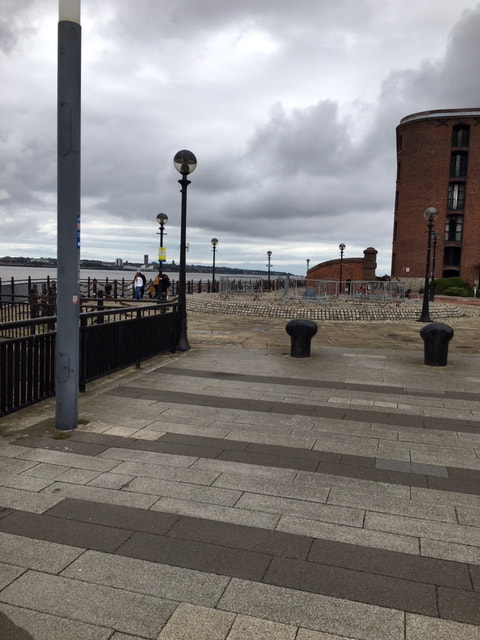
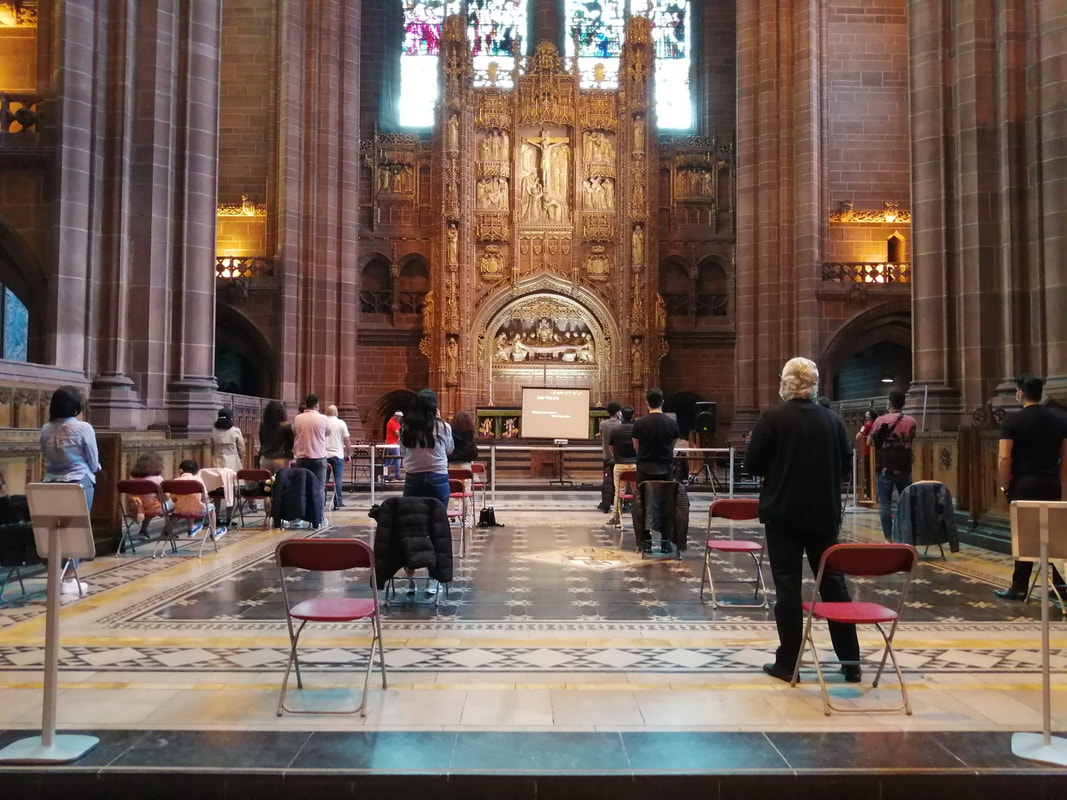

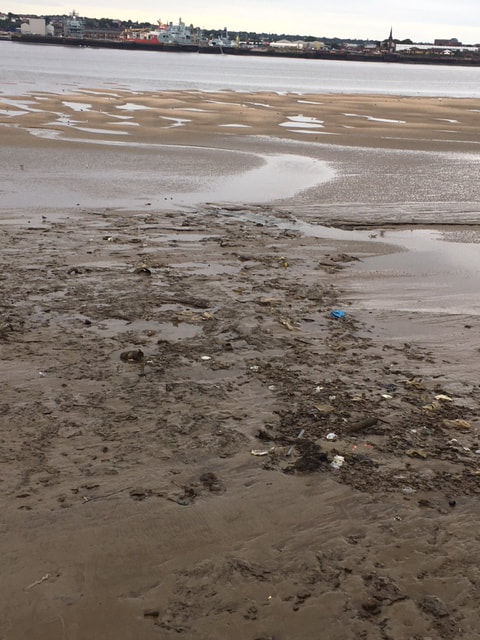
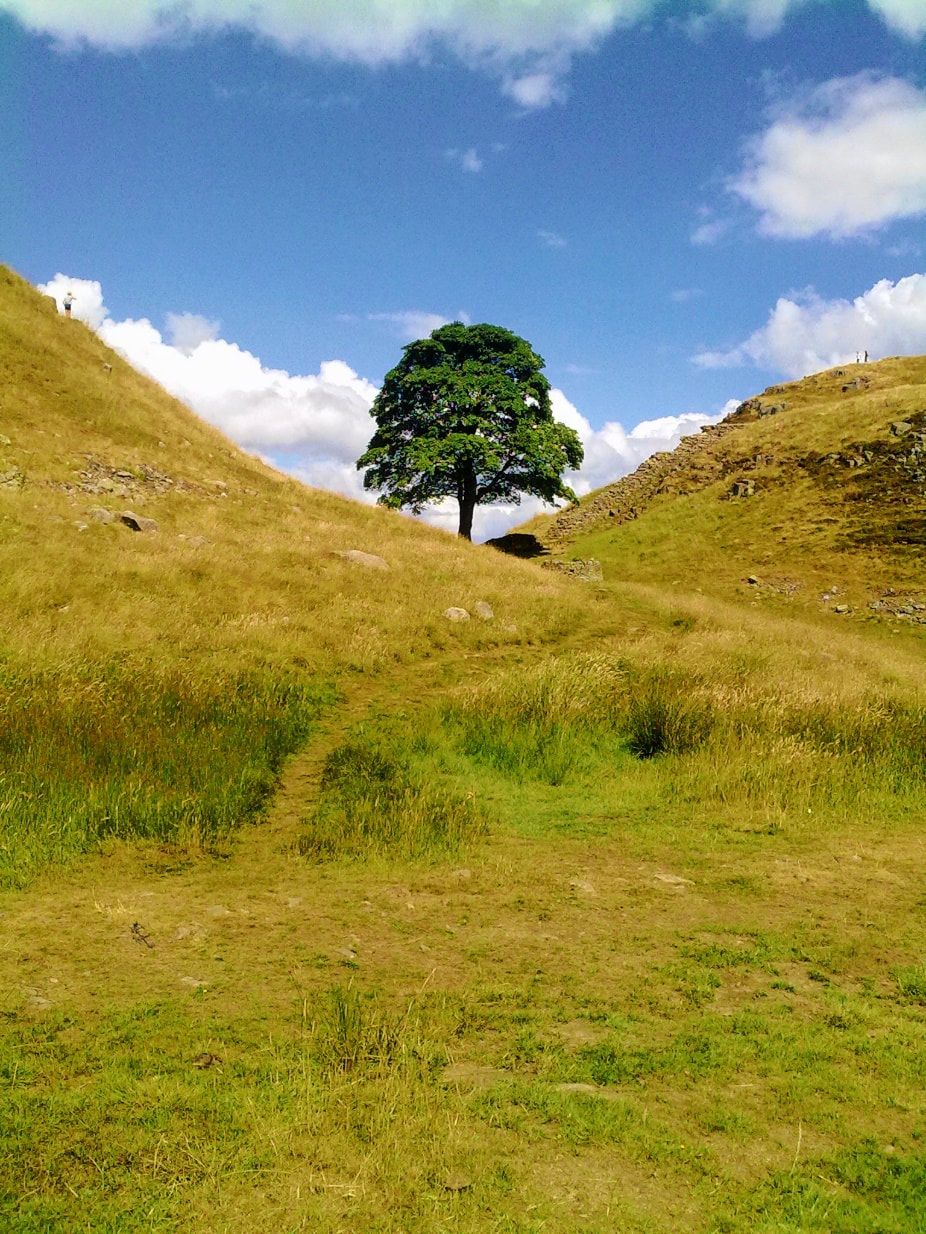
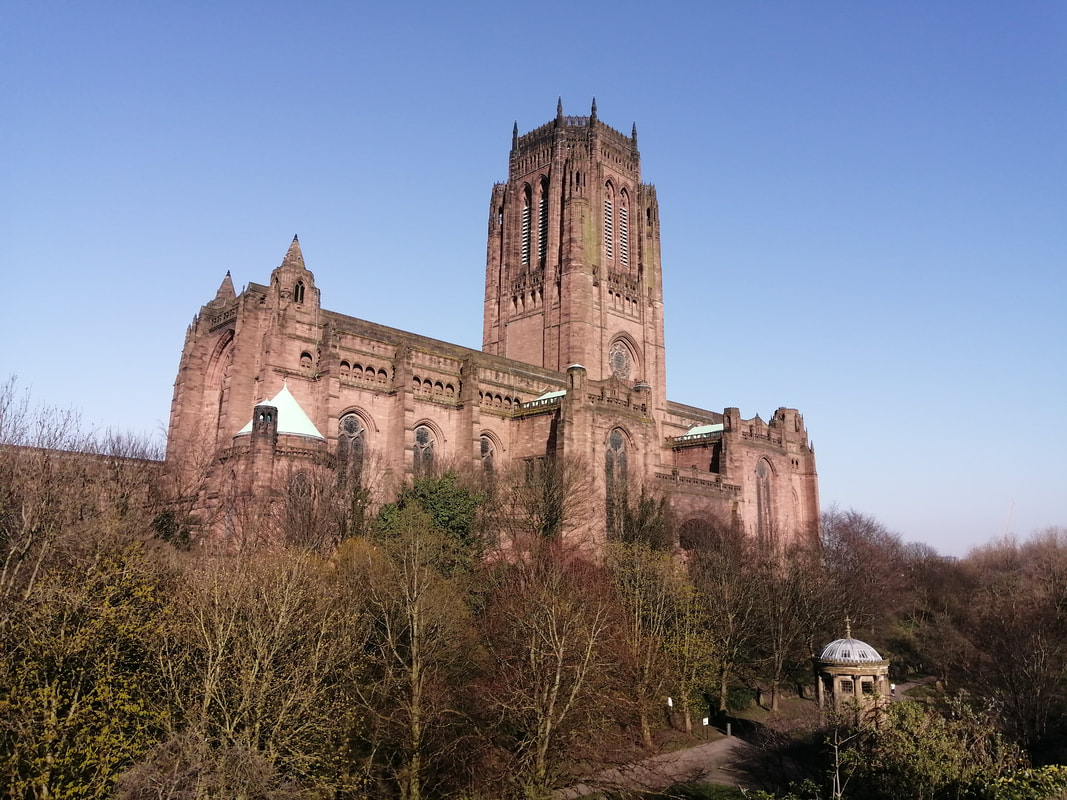
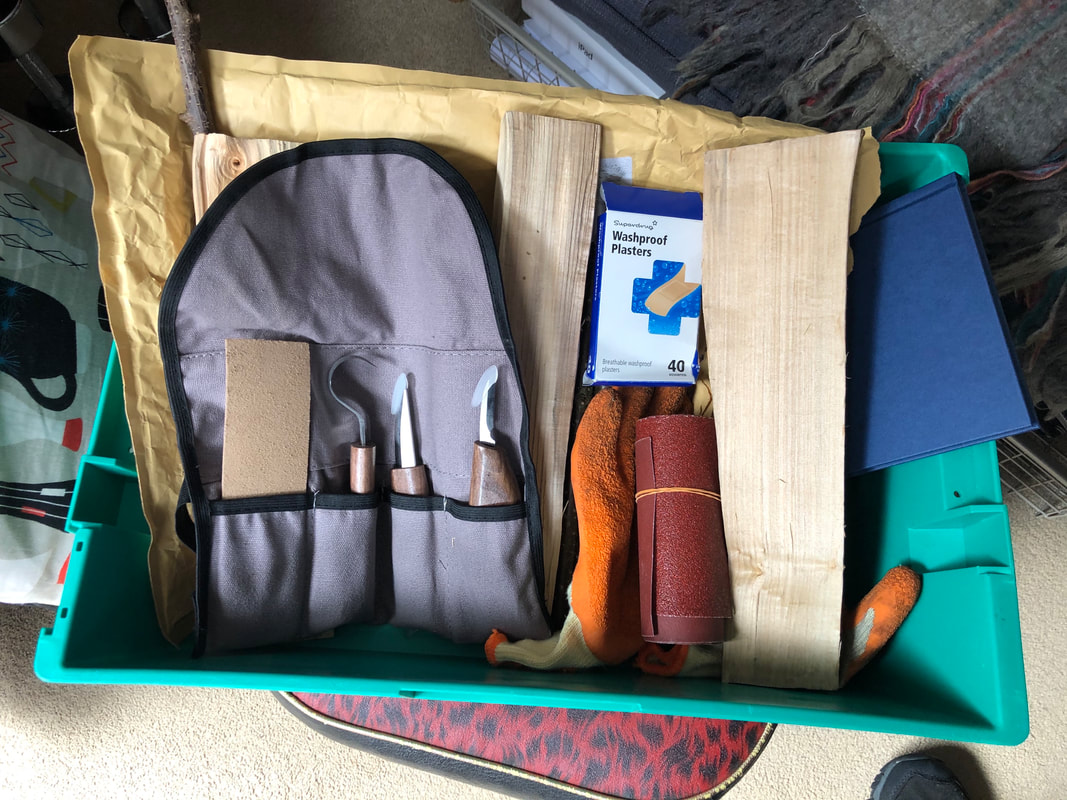
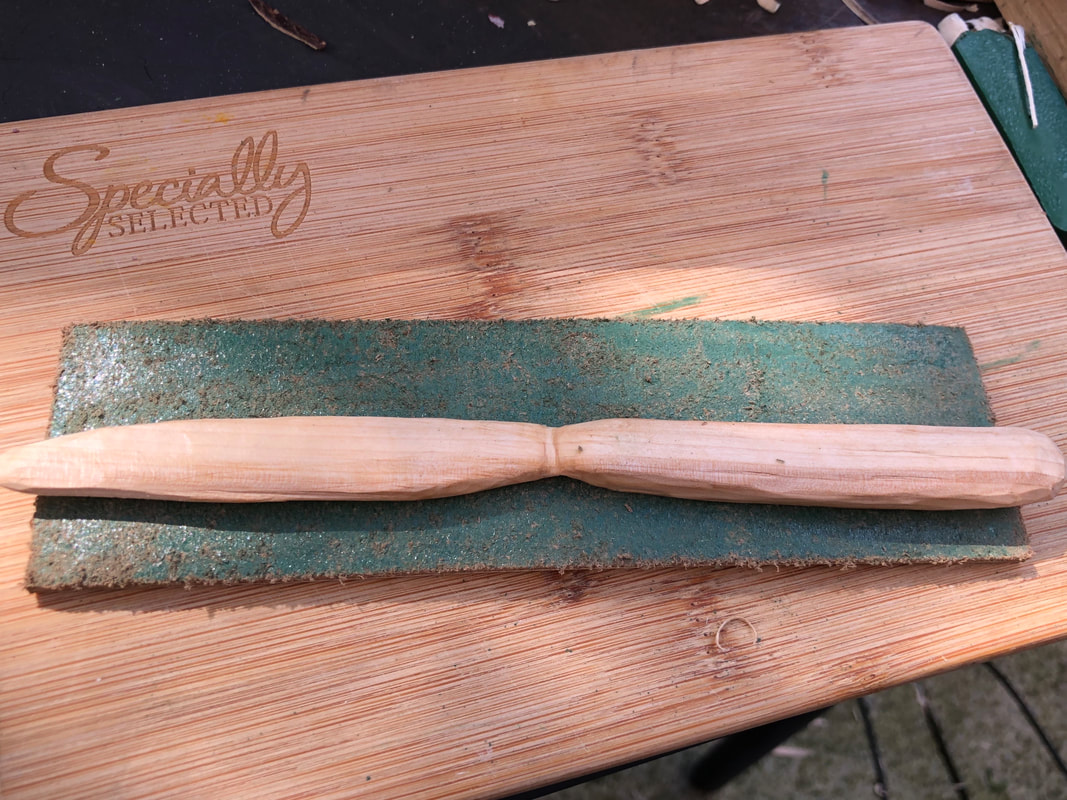
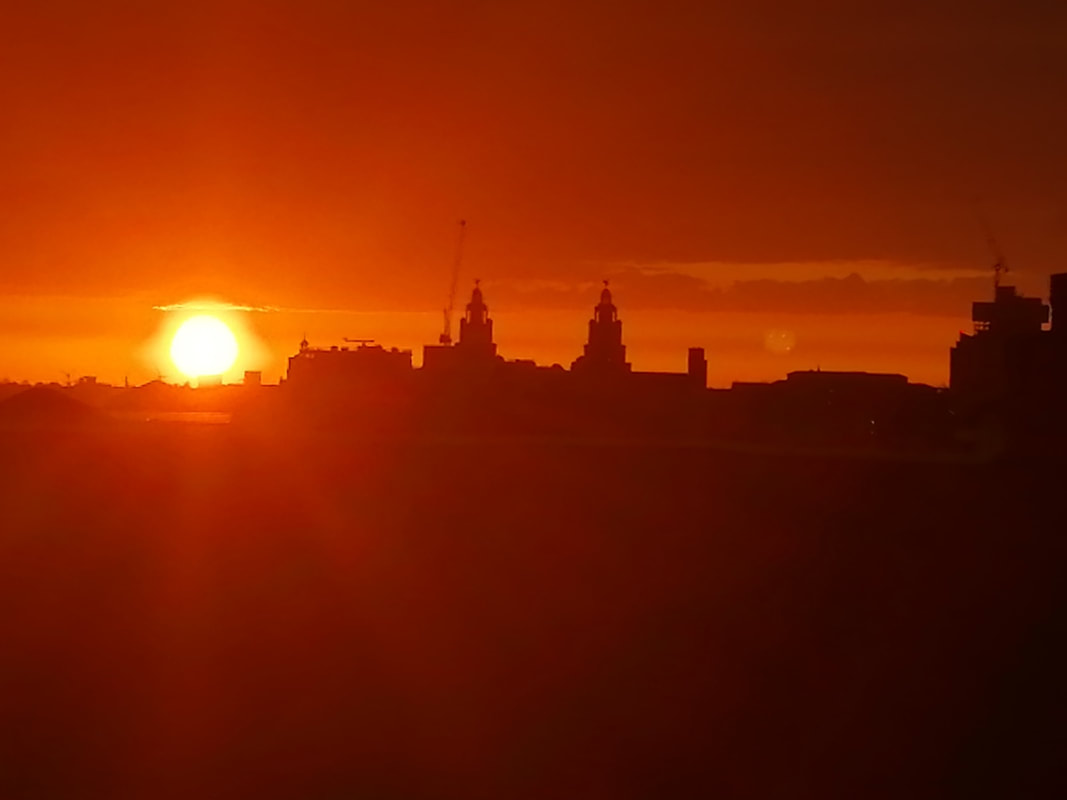
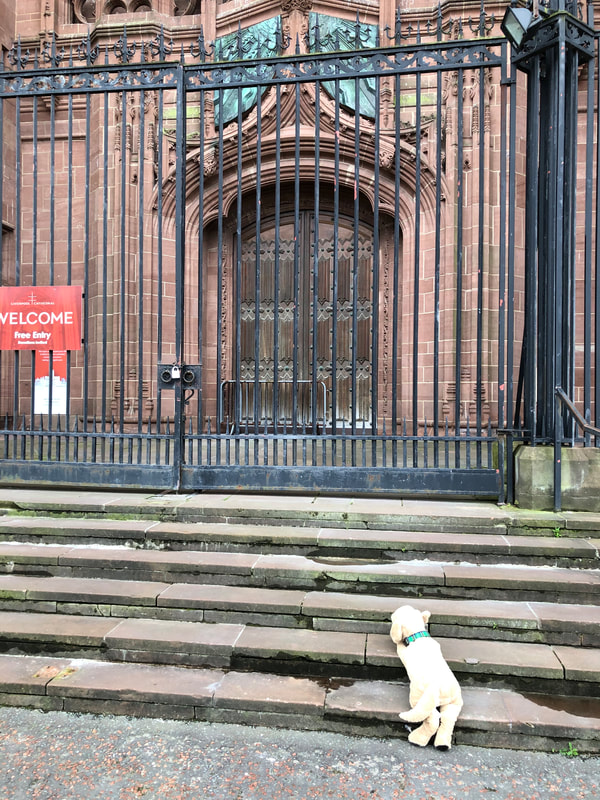
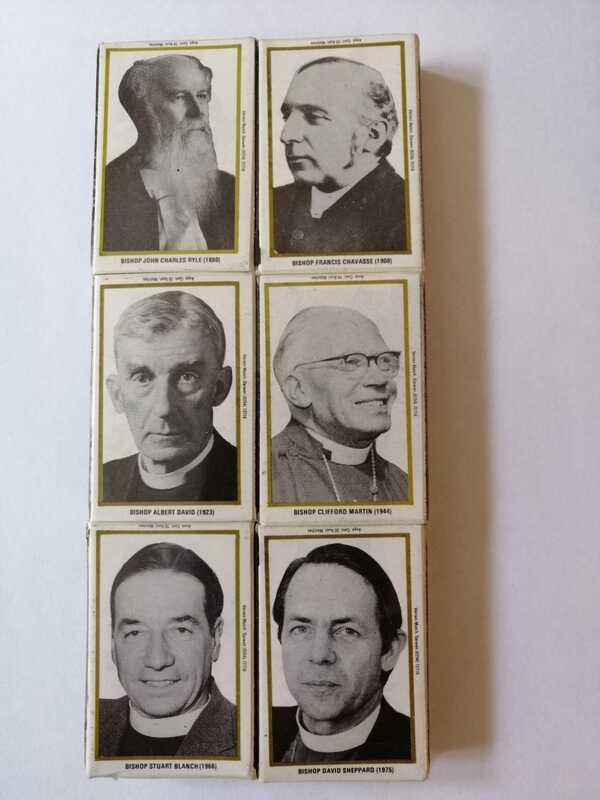
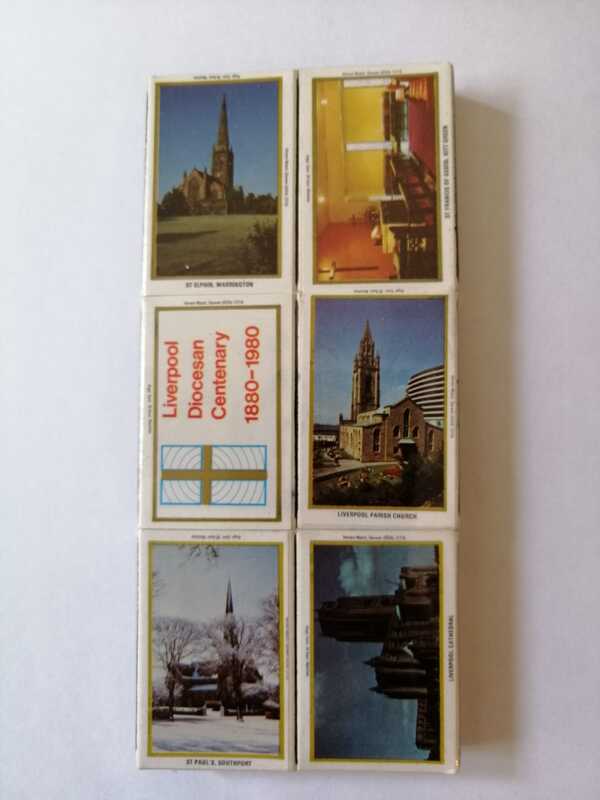
 RSS Feed
RSS Feed
